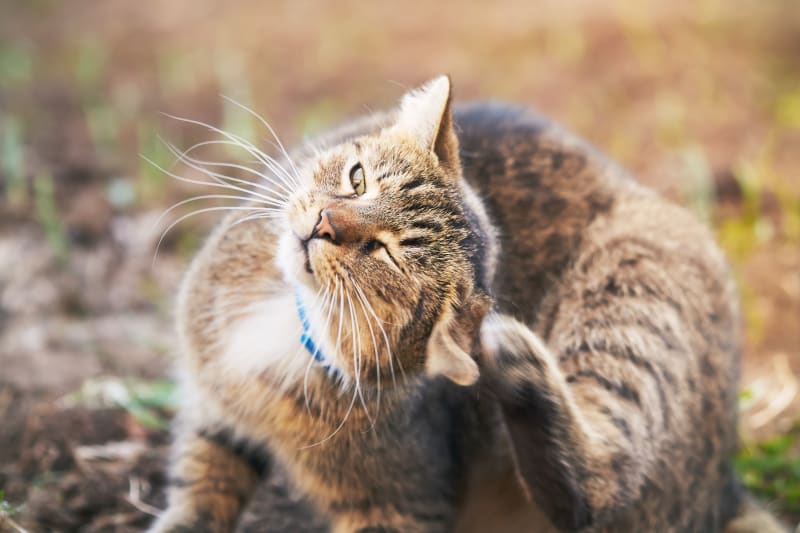Like humans, cats can suffer from allergies for a limited time and more often than you think. These can be of different types, for example they can be caused by flea saliva, insect bites or some substances in the environment. We will analyze together which are the most common allergies, how to prevent and treat them.

What are the most common types of allergies in cats?
Three of the most common allergies are:
- flea bite allergy (saliva)
- Food allergy
- Environmental allergy
Unfortunately, flea bites are not uncommon and they affect our cats too. The main symptom here is severe itching and subsequent damage to the skin tissue.
When it comes to food allergies, there are some foods that can unfortunately cause allergies in our beloved cats. These are mainly animal proteins, wheat and additives.
An environmental allergy is related to natural elements such as herbs, pollen and plants. These allergies can also be caused by detergents and dyes used in the home. The disease which mainly occurs in connection with this problem is atopy. Also called atopic dermatitis, it causes our lovely cats to itch.
Serious allergy-related symptoms
Cats can experience many allergy-related symptoms, including the following:
- Intense and chronic itching that causes the cat to scratch, lick, or even injure itself
- Redness and rash
- Hair loss, often symmetrical (alopecia)
- digestive problems (vomiting, abdominal pain)
- Breathing troubles such as shortness of breath
- Ear infections
All naturally occurring substances that cause these allergic symptoms are called allergens.
Of course, the cat should be taken to a qualified veterinarian for a check-up, as some allergy symptoms can be mistaken for other conditions, such as respiratory conditions, which can often also lead to feline asthma. It may be necessary to remove the cat’s fur to check for parasites. In addition, your vet will likely request a blood and urine sample to be 100% sure of the cat’s condition.
Diet is key to avoiding allergies, with products such as dietary supplements and hypoallergenic cat food made by brands like I Love My Cat. These products help limit the damage associated with food allergies and sometimes boost the immune system of the cat that consumes them. As the saying goes “prevention is better than cure” it is better to keep your cat away from potential allergens and also avoid exposing them to the same food for long periods of time. Excessive amounts of the (potentially allergenic) substance can damage the cat’s digestive system, causing vomiting, diarrhea and various types of pain. One idea would be to feed the cat’s food with insect proteins, which eliminates potentially harmful food allergens. Regarding atopy, it is possible to treat your cat to avoid fleas and parasites, which are often the most common and dangerous. Treatment is highly dependent on the allergen and the duration, persistence, and variety of symptoms.
The goal must be to improve the lives of our cats and knowing the secrets and advice on the subject can only benefit your knowledge and raise awareness that our animal friends need care and attention.
